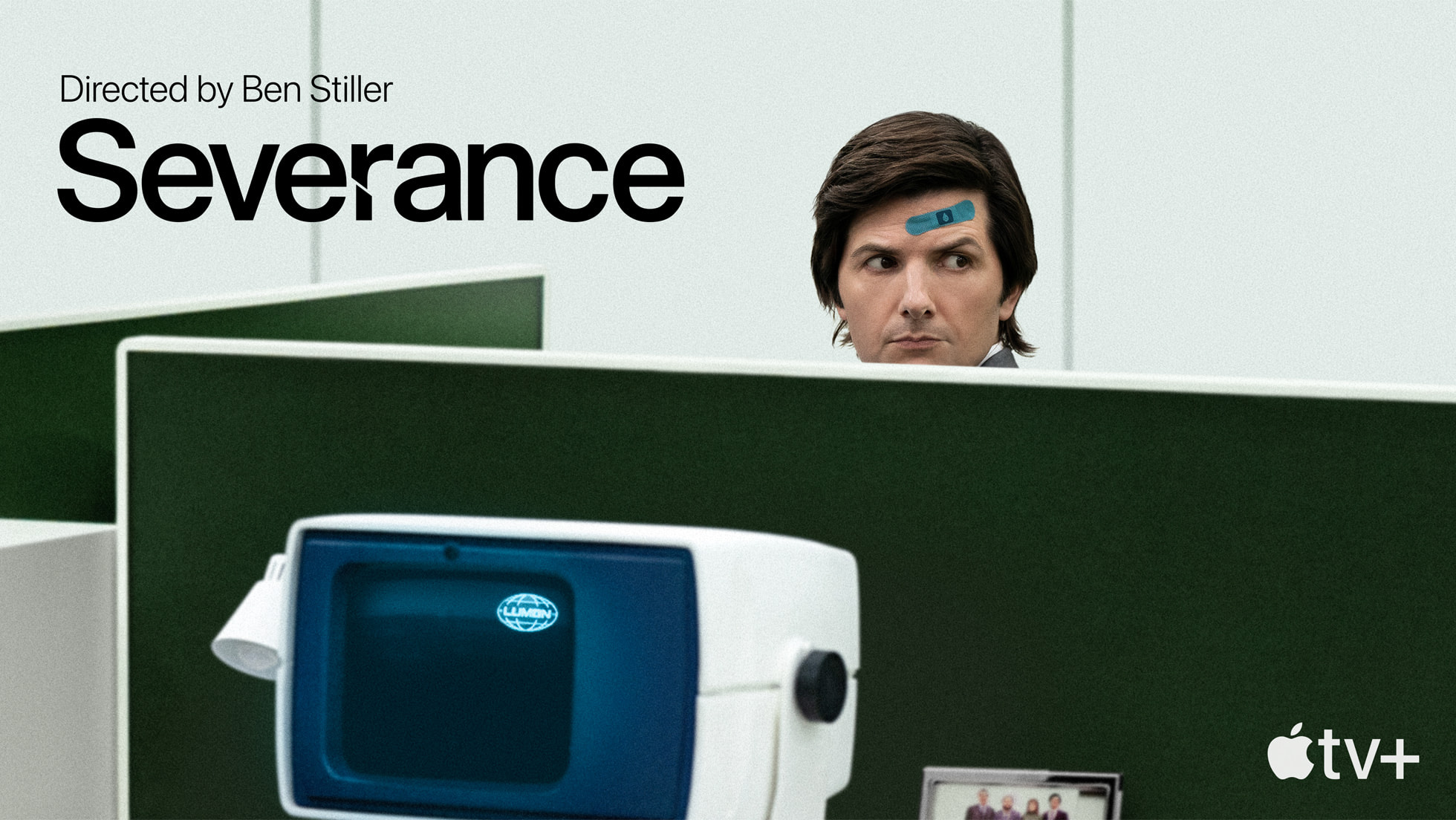“Severance Apple TV Plus” has taken audiences by storm with its innovative premise and thought-provoking themes. As the show concluded its highly anticipated second season, it left fans buzzing with speculation about the profound implications of the narrative. Centering around office workers who undergo a mind-altering procedure, the story challenges viewers to consider their own work-life balance and explores deeper questions of identity, free will, and self-perception. Nicky Weinstock, one of the show’s producers, describes it as a “willfully strange” creation that resonates poignantly with our contemporary struggles. With its unique storytelling, “Severance” has become a fixture in the conversation about modern television, earning critical acclaim in reviews and recaps alike, especially as viewers eagerly await Season 3 for more psychological intrigue.
The Apple TV Plus series “Severance” has emerged as a groundbreaking exploration of the intricacies of modern existence. This show delves into the lives of characters who compartmentalize their consciousness, raising essential questions about the intersection of work and personal life. The dynamic between the ‘innie’ and ‘outie’ personas captivates those grappling with their dual identities in today’s fast-paced world. Moreover, as the series unfolds, it challenges the audience to reflect on themes like autonomy, self-discovery, and the often chaotic nature of human relationships. With each episode, viewers find themselves more engrossed in the psychological drama and the deeper significance behind the show’s surreal premise.
Exploring the Unique Concept of Severance
The Apple TV Plus series “Severance” presents a groundbreaking concept where employees undergo a procedure to separate their consciousness into distinct parts: the ‘innie,’ who only exists at work, and the ‘outie,’ who lives life outside the office. This intriguing division raises questions about personal identity, free will, and the nature of reality itself. In our increasingly compartmentalized world, the show’s themes resonate deeply with viewers who often feel like they lead dual lives, embodying different personas in various environments. As highlighted in reviews of the show, this exploration of bifurcation aligns with many people’s experiences in today’s fast-paced society, where work and personal lives frequently clash without harmony.
The show’s creator, Dan Erickson, ingeniously captures the discomfort and complexity of inhabiting these two identities. Audiences are drawn into the unsettling world where characters grapple with the implications of their fragmented minds. With a narrative structure that blurs the lines between reality and fiction, “Severance” compels viewers to confront their own divided existences. The concept amplifies the tension between professional obligations and personal fulfillment, making it a relevant commentary on modern work-life dynamics, a theme that is echoed throughout various Severance show reviews.
Severance Season 2: A Recap of Evolving Themes
As the second season of “Severance” unfolded, it expanded upon the themes established in the first season, which was steeped in claustrophobia and isolation reflective of the COVID-19 era. Season 2 took bold steps to broaden the narrative scope, exploring larger philosophical inquiries about humanity and existence. The characters are presented with increasingly complex scenarios that challenge their perceptions of self and reality, revealing deeper layers of conflict and consequence as they navigate their severed lives. The show’s evolution ensures that it not only maintains its unique intrigue, but also resonates with audiences grappling with their own feelings of uncertainty and dislocation in a rapidly changing world.
The climax of Season 2 left viewers at a pivotal moment, raising new questions about relationships and identity that will carry over into the anticipated Season 3. The show’s ability to reflect contemporary themes such as trust, authority, and personal agency represents a bold narrative strategy that captivates audiences and encourages them to reflect on their own lives. The clever intertwining of personal struggles within larger societal issues positions “Severance” as not just a narrative, but as a cultural exploration that invites viewers to engage with real-life mysteries, mirroring the sentiments expressed by Nicky Weinstock, one of the show’s producers.
Nicky Weinstock’s Vision Behind Severance
Nicky Weinstock, a Harvard alumnus and co-producer of “Severance,” shares insights into the unique vision that drives the show. His background in anthropology and global storytelling heavily influences the narrative’s depth, as he seeks to illuminate various cultural nuances that often go unrepresented in mainstream media. Weinstock’s determination to maintain a global perspective showcases his commitment to storytelling that challenges traditional Hollywood norms, aiming to source diverse narratives that resonate widely. This intent has paved the way for profound explorations of identity, autonomy, and the human condition, echoing the complex themes that characterize the series.
In an industry typically dominated by familiar formats and established narratives, Weinstock’s enthusiasm for the unconventional shines through. He emphasizes that the uniqueness of “Severance” is a significant factor in its appeal, attracting both fans and critical acclaim. As he continues to collaborate with Dan Erickson and the talented cast, including stars like John Turturro and Patricia Arquette, Weinstock’s vision promises to challenge viewers with bold storytelling that ignites conversation about the intricate dance between work and life, echoing the inquiries represented in seasonal recaps and discussions surrounding the show.
Themes of Identity and Free Will in Severance
The themes of identity and free will are intricately woven into the fabric of “Severance,” compelling viewers to question the nature of their own lives. The concept of severance raises critical inquiries about who we are when stripped of our memories and how work-life balance impacts our true selves. As the characters navigate their dual realities, they are forced to confront their desires, intentions, and what freedoms they sacrifice upon entering the professional realm. This thoughtful exploration resonates profoundly, as many individuals experience similar struggles between societal expectations and personal authenticity.
In delving into these philosophical themes, “Severance” captures the zeitgeist of contemporary existence, where the boundaries of life and work blur. The show forces viewers to consider the implications of their choices and the psychological costs associated with their careers. Consequently, it doesn’t just entertain; it serves as a mirror, reflecting the complexities of modern identity and the pursuit of self-understanding in a world that often demands conformity. By engaging with these topics, the series contributes significantly to the ongoing discourse around work culture, autonomy, and emotional well-being.
Anticipating Season 3 of Severance
As fans eagerly await the release of Season 3 of “Severance,” anticipation surrounds how the narrative will evolve beyond the events of Season 2. Weinstock has hinted that the upcoming season will diverge significantly from its predecessors, offering new insights into the concept of severed identities. This revelation sets the stage for fresh storytelling avenues, potentially deepening the exploration of characters’ lives and expanding the scope of the show’s thematic inquiries. Viewers are left to ponder how the conflicts introduced in Season 2 will resolve and what transformations lie ahead for the characters as they continue to navigate their enigmatic world.
The cliffhanger ending of Season 2 has laid a foundation for exciting developments. With the stakes heightened, the third season is poised to challenge characters’ perceptions of reality and interpersonal dynamics further. It promises to delve into unresolved questions, such as the implications of their choices and the nature of control over their severed selves. With Weinstock’s creative vision and commitment to pushing boundaries, audiences can expect a captivating continuation that will maintain the show’s thrilling blend of mystery and philosophical inquiry, inviting further engagement with its core themes.
Cultural Reflections in Severance
“Severance” not only entertains but also serves as a cultural artifact that reflects the complexities of modern life. The show’s depiction of the split between work and personal life resonates with viewers navigating similar struggles in an era dominated by technology and constant connectivity. By mirroring societal anxieties about work, identity, and mental health, “Severance” offers a poignant commentary on the human experience. Each episode prompts discussions about the nature of autonomy and the price of professionalism, encouraging viewers to recognize the broader implications of their choices.
This cultural examination finds its roots in the script’s original vision by Dan Erickson, whose incisive writing captures the essence of contemporary existential dilemmas. As audiences engage with the show’s narrative, they are invited to reflect on their own bifurcated lives and the emotional toll of sequentially navigating multiple roles. This remarkable connection transforms “Severance” into a platform for dialogue surrounding work culture, personal fulfillment, and the ever-elusive pursuit of balance, bridging the gap between entertainment and profound social commentary.
Severance’s Unique Narrative Style
The narrative style of “Severance” is as innovative as its core concept, combining elements of thriller and dark comedy to create a unique viewing experience. The show’s pacing and structure mirror the psychological tension experienced by its characters, immersing audiences in their fractured realities. Episodes unfold with a sense of suspense that reflects the disorienting nature of the severed lives portrayed onscreen. As viewers become invested in the characters’ journeys, they are treated to unexpected twists that challenge their assumptions and provoke critical reflection.
This distinctive approach not only captivates viewers but also enhances the overall thematic impact of the series. Each episode brilliantly unfolds layers of complexity regarding identity and choice, fostering an atmosphere that encourages audiences to contemplate the underlying messages. By employing a narrative style that marries comedy with critique, “Severance” engages viewers on both an emotional and intellectual level, ensuring its place as a significant contemporary series that invites discussion among fans and critics alike.
The Future of Apple TV Plus and Severance
The success of “Severance” has elevated the profile of Apple TV Plus, positioning it as a competitive player in the streaming landscape. The show has garnered critical acclaim and a dedicated fan base, establishing Apple TV Plus as a platform for innovative storytelling that challenges traditional norms. As subscribers continue to tune in for high-quality content, channels such as Apple TV Plus are becoming increasingly essential in shaping the future of television, marking a shift towards more artistic and daring narratives.
Looking ahead, the network’s commitment to projects like “Severance” suggests a continued emphasis on creative risk-taking and authentic storytelling. The exploration of complex themes such as identity and duality aligns with evolving audience expectations for content that resonates on a deeper level. As the streaming wars intensify, Apple TV Plus’s auteur-driven approach and willingness to embrace unconventional narratives will likely influence the broader television landscape, paving the way for future series that push boundaries and redefine storytelling conventions.
Frequently Asked Questions
What is the premise of Severance on Apple TV Plus?
Severance on Apple TV Plus revolves around a unique concept where office workers undergo a procedure that splits their consciousness, creating an ‘innie’ who exists only at work and an ‘outie’ in their personal lives. This intriguing premise invites viewers to question themes of identity, work-life balance, and the nature of free will, making it a standout series in contemporary television.
What are some prominent themes explored in Severance on Apple TV Plus?
Severance delves into profound themes such as identity, the struggle for work-life balance, and the internal conflict of living dual lives. These themes resonate with viewers, especially as they reflect the complexities of modern existence, heightened by recent global challenges.
Who is Nicky Weinstock in relation to the Severance series?
Nicky Weinstock is a producer of Severance, known for his innovative approach to storytelling. His involvement has contributed significantly to the show’s unique vision, helping to bring the unconventional script by Dan Erickson to life on Apple TV Plus.
How did Severance perform in its second season on Apple TV Plus?
Severance’s second season concluded with a significant cliffhanger, further deepening the intrigue built during its first season. The show successfully expanded its narrative scope, addressing larger questions about humanity while maintaining its unique style, garnering critical acclaim and a loyal fanbase.
What can fans expect from Season 3 of Severance on Apple TV Plus?
While specific details about Season 3 of Severance are under wraps, it’s been teased that the upcoming season will move away from the constraints of the first two seasons. Fans can expect a broader exploration of the show’s central themes of duality and identity, continuing to challenge viewer perceptions.
How does Severance address the concept of work-life balance?
Severance directly tackles the concept of work-life balance by illustrating the lives of its characters who literally separate their work personas from their personal lives. This raises questions about the psychological impacts of our identities and the sacrifices made for professional roles, resonating deeply with audiences.
What makes Severance a unique addition to Apple TV Plus?
Severance is unique due to its original concept that combines a reflective narrative on human identity with elements of psychological thriller and satire. This creative blend, along with its high production values and deep thematic explorations, distinguishes it as a flagship series for Apple TV Plus.
What has been the audience’s response to Severance on Apple TV Plus?
The audience response to Severance has been overwhelmingly positive, with many praising its thought-provoking themes and original storytelling. The series has sparked discussions about its exploration of identity and consciousness, establishing a strong cultural impact and a dedicated fanbase.
| Key Points | Description |
|---|---|
| Show Title | Severance – Apple TV Plus |
| Premiere | Season 1 premiered in 2022, and Season 2 concluded last month (March 2025). |
| Themes | The show explores work-life balance, identity, free will, and the internal conflict of being at odds with oneself. |
| Producer | Nicky Weinstock, a Harvard alumnus who co-produces the show. |
| Unique Concept | Centers on workers who have their consciousness divided into separate ‘innie’ and ‘outie’ identities, with no memory of each other. |
| Cultural Reflection | Mirrors the challenges of post-COVID life, exploring themes of uncertainty and divided lives. |
| Future Seasons | Season 3 will diverge significantly from the first two seasons, exploring broader concepts of identity and self. |
Summary
Severance Apple TV Plus has proven to be a groundbreaking exploration of modern life. It engages audiences with its unique premise and deep thematic content, addressing the complexities of identity and the duality of existence. As the show continues to evolve, it reflects broader societal anxieties while captivating viewers with its innovative narrative style. The anticipation for Season 3 speaks to the show’s impact, ensuring that it remains a significant part of contemporary television discourse.



